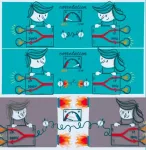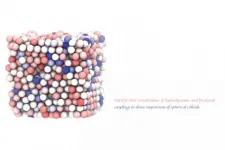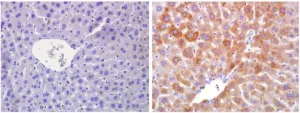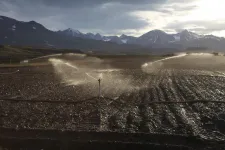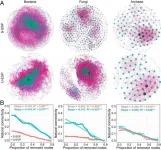(Press-News.org) The phenomenon of quantum nonlocality defies our everyday intuition. It shows the strong correlations between several quantum particles some of which change their state instantaneously when the others are measured, regardless of the distance between them. While this phenomenon has been confirmed for slow moving particles, it has been debated whether nonlocality is preserved when particles move very fast at velocities close to the speed of light, and even more so when those velocities are quantum mechanically indefinite. Now, researchers from the University of Vienna, the Austrian Academy of Sciences and the Perimeter Institute report in the latest issue of Physical Review Letters that nonlocality is a universal property of the world, regardless of how and at what speed quantum particles move.
It is easy to illustrate how correlations can arise in everyday life. Imagine that each day of the month you send two of your friends, Alice and Bob, a toy engine of a set of two for their collection. You can choose each of the engines to be either red or blue or either electric or steam. Your friends are separated by a large distance and do not know about your choice. Once their parcels arrive, they can check the colour of their engine with a device that can distinguish between red and blue or check whether the engine is electric or steam using another device. They compare the measurements made over time to look for particular correlations. In our everyday world, such correlations obey two principles - "realism" and "locality". "Realism" means that Alice and Bob reveal only what colour or the mechanism of the engine you had chosen in the past, and "locality" means that Alice's measurement cannot change the colour or the mechanism of Bob's engine (or vice versa). Bell's theorem, published in 1964 and considered by some to be one of the most profound discoveries in the foundations of physics, showed that correlations in the quantum world are incompatible with the two principles - a phenomenon known as quantum non-locality.
Quantum nonlocality has been confirmed in numerous experiments, the so-called Bell tests, on atoms, ions and electrons. It not only has deep philosophical implications, but also underpins many of the applications such as quantum computation and quantum satellite communications. However, in all of these experiments, the particles were either at rest or moving at low velocities (scientists call this regime "non-relativistic"). One of the unsolved problems in this field, which still puzzles physicists, is whether nonlocality is preserved when particles are moving extremely fast, close to the speed of light (i.e., in the relativistic regime), or when they are not even moving at a well-defined speed.
For two quantum particles in a Bell's test which move at high speeds researchers predict that the correlations between the particles are, in principle, reduced. However, if Alice and Bob adapt their measurements in a way that depends on the speed of the particles the correlations between the results of their measurements are still nonlocal. Now imagine that not only are the particles moving very fast, but their velocity is also indefinite: each particle moves in a so-called superposition of different velocities simultaneously, just as the infamous Schrödinger's cat is simultaneously dead and alive. In such a case, is their description of the world still non-local?
Researchers, led by ?aslav Brukner at the University of Vienna and the Austrian Academy of Sciences, have shown that Alice and Bob can indeed design an experiment which would prove that the world is nonlocal. For this they used one of the most fundamental principles of physics namely that physical phenomena do not depend on the frame of reference from which we observe them. For example, according to this principle, any observer, whether moving or not, will see that an apple falling from a tree will touch the ground. The researchers went a step further and extended this principle to reference frames "attached" to quantum particles. These are called "quantum reference frames." The key insight is that if Alice and Bob could move with the quantum reference frames along with their respective particles, they could perform the usual Bell test, since for them the particles would be at rest. In this way, they can prove quantum nonlocality for any quantum particle, regardless of whether the velocity is indefinite or close to that of light.
Flaminia Giacomini, one of the study's authors, says, "Our result proves that it is possible to design a Bell experiment for particles moving in a quantum superposition at very high speeds." The co-author, Lucas Streiter, concludes, "We have shown that nonlocality is a universal property of our world." Their discovery is expected to open applications in quantum technologies, such as quantum satellite communications and quantum computation, using relativistic particles.
INFORMATION:
Publication in Physical Review Letters:
L. F. Streiter, F. Giacomini, ?. Brukner, "Relativistic Bell Test within Quantum Reference Frames", Phys. Rev. Lett., 2021 DOI: 10.1103/PhysRevLett.126.230403
Tokyo, Japan - Colloids--mixtures of particles made from one substance, dispersed in another substance--crop up in numerous areas of everyday life, including cosmetics, food and dyes, and form important systems within our bodies. Understanding the behavior of colloids therefore has wide-ranging implications, yet investigating the rotation of spherical particles has been challenging. Now, an international team including researchers from The University of Tokyo Institute of Industrial Science has created particles with an off-center core or "eye" that can be tracked ...
Getting energy and nutrients from the environment - that is, eating - is such an important function that it has been regulated through sophisticated mechanisms over hundreds of millions of years. Some of these mechanisms are only now beginning to be unravelled. A group at the Spanish National Cancer Research Centre (CNIO) has found one of their key components - a switch that controls the ability of organisms to adapt to low cellular nutrient levels.
The protein involved is RagA, which is part of the mTOR molecular pathway, whose importance in metabolic activity regulation has been known for decades now. CNIO researchers have found that if RagA is continuously activated, cells do not know that there are no sufficient nutrients and so ...
The encryption algorithm GEA-1 was implemented in mobile phones in the 1990s to encrypt data connections. Since then, it has been kept secret. Now, a research team from Ruhr-Universität Bochum (RUB), together with colleagues from France and Norway, has analysed the algorithm and has come to the following conclusion: GEA-1 is so easy to break that it must be a deliberately weak encryption that was built in as a backdoor. Although the vulnerability is still present in many modern mobile phones, it no longer poses any significant threat to users, according to the researchers.
Backdoors not useful according to researchers
"Even though intelligence services and ministers of the interior understandably want such backdoors ...
ENVIRONMENT Diesel-polluted soil from now defunct military outposts in Greenland can be remediated using naturally occurring soil bacteria according to an extensive five-year experiment in Mestersvig, East Greenland, to which the University of Copenhagen has contributed.
Mothballed military outposts and stacks of rusting oil drums aren't an unusual sight in Greenland. Indeed, there are about 30 abandoned military installations in Greenland where diesel, once used to keep generators and other machinery running, may have seeped into the ground.
This is the case with Station 9117 Mestersvig, an abandoned military airfield ...
These findings were published in the journal Cellular and Molecular Life Sciences on 8 June 2021.
Huge splicing diversity in the brain
The human genome was sequenced around 20 years ago. Since then, the sequence information encoding our proteins is known - at least in principle. However, this information is not continuously stored in the individual genes, but is divided into smaller coding sections. These coding sections, also known as exons, are assembled in a process called splicing. Depending on the gene, different exon combinations are possible, which is why they are referred to as different or ...
With increasing vaccination rates and decreasing numbers of infections, the population's feeling of safety is also rising. As the results of the 37th edition of the BfR-Corona-Monitor, a regular survey conducted by the German Federal Institute for Risk Assessment (BfR), show, the majority of the population in Germany thinks it can control its risk of an infection well. "62 percent are confident that they can protect themselves from an infection with the coronavirus," says BfR-President Professor Dr. Dr. Andreas Hensel. "We see that the feeling of safety has increased considerably. ...
Chinese researchers have recently discovered links between reduction in microbial stability and soil carbon loss in the active layer of degraded alpine permafrost on the Qinghai-Tibet Plateau (QTP).
The researchers, headed by Prof. CHEN Shengyun from the Northwest Institute of Eco-Environment and Resources (NIEER) of the Chinese Academy of Sciences (CAS), and XUE Kai from University of Chinese Academy of Sciences, conducted a combined in-depth analysis of soil microbial communities and their co-occurrence networks in the active permafrost layer along an extensive gradient of permafrost degradation.
The QTP encompasses the largest extent of high-altitude mountain ...
Greater Helsinki -- Transitioning to low-carbon energy production is the biggest climate challenge to overcome. Many countries are already looking to adopt clean heating solutions more widely, with the International Energy Agency projecting that by 2045 nearly half of global heating will be done with heat pumps. To ensure speedy uptake, governments are likely to offer subsidies to ensure these energy-efficient options actually make their way into homes and offices.
A new study from Aalto University assesses the impact of heat pumps on energy consumption as well as how ...
Research published in the journal ACS Materials and Interfaces has provided new understanding of how false-negative results in Lateral Flow Tests occur and provides opportunity for simple improvements to be made.
Lateral Flow Devices were introduced late in 2020 on a global scale to help detect novel coronavirus infection in individuals, with test results produced rapidly in half an hour or less. However, their potential has been somewhat hindered by inadequate sensitivity, with a high number of false-negative results.
Using X-ray fluorescence imaging from Diamond Light Source, researchers from King's College London ...
Researchers from the University of Kent's School of Psychology have found that when people are presented with the idea of a Covid-19 "immunity passport", they show less willingness to follow social distancing and face covering guidelines. However, this willingness seems to return when people read more cautious information about Covid-19 immunity.
PhD students Ricky Green and Mikey Biddlestone and Professor Karen Douglas asked participants from the UK and USA to imagine they had either recovered from Covid-19 or were currently infected. Participants asked to imagine ...
